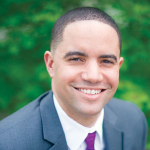As a physician historian, I use techniques from history, anthropology, and epidemiology to study determinants of health outcomes. I completed my MD/PhD with a focus in the history of science, and have written about international opiate regulations, population control campaigns, economic indices, AIDS treatment activism, and hepatitis C diagnostic technologies. The aim of my research is to show how our way of delivering and paying for medical care developed, and how we might do better.
Today, I am studying the history of medical debt collection and the impact these debts are having on Americans’ lives. Since the 1980s, unpaid medical debts have moved from obligations negotiated by doctors and patients to financial instruments traded on impersonal financial exchanges. Spurred in part by cuts in public funding and insurance companies’ turn toward cost-sharing, hospitals have faced more bad debts. In response, health care institutions sent overdue bills to collection agencies and debt buyers. Divorced from the physicians’ bond to patients, debt collectors exercise draconian techniques, using wage garnishments, liens on homes, and lawsuits to extract profits from patients. Aggressive debt collection and third-party debt purchasing have continued to spread.
Another area of my research examines how health professionals respond to scarcity. My book, No More to Spend: Neglect and the Construction of Scarcity in Malawi’s History of Medicine, is a history of medical neglect in Malawi. Using the stories of doctors, patients, and political leaders, the book shows how colonial and postcolonial administrations used claims of scarcity to justify the dismal state of health care. Scarcity was not inevitable but was instead the product of choices by powerful actors to siphon financial resources away from medical care.
The COVID-19 pandemic highlighted the urgent need to study scarcity. New shortages have emerged, particularly in nursing staffing. This experience revealed the many tolls—psychological, economic, and clinical—exacted by not having enough resources to care for patients safely. In settings plagued by chronic scarcity, health care professionals face these inadequacies every day. Economists and psychologists have demonstrated how scarcity impairs the ability to make rational decisions. This has relevance to the practice of emergency medicine, particularly in low-income settings, where the constant pressure of not being able to practice the standard of care and the knowledge that one works in a system of tiered access can contribute to burnout, rushed diagnoses, and improper management. By understanding the pathophysiology of scarcity, we will improve outcomes and be better equipped to address health inequity.
 Dr. Borelli is an emergency medicine resident at the University of Texas Health San Antonio and ACEP Now resident fellow.
Dr. Borelli is an emergency medicine resident at the University of Texas Health San Antonio and ACEP Now resident fellow.
Pages: 1 2 3 4 | Single Page






No Responses to “Emergency Medicine Residents Share Their Innovations in Our Field”